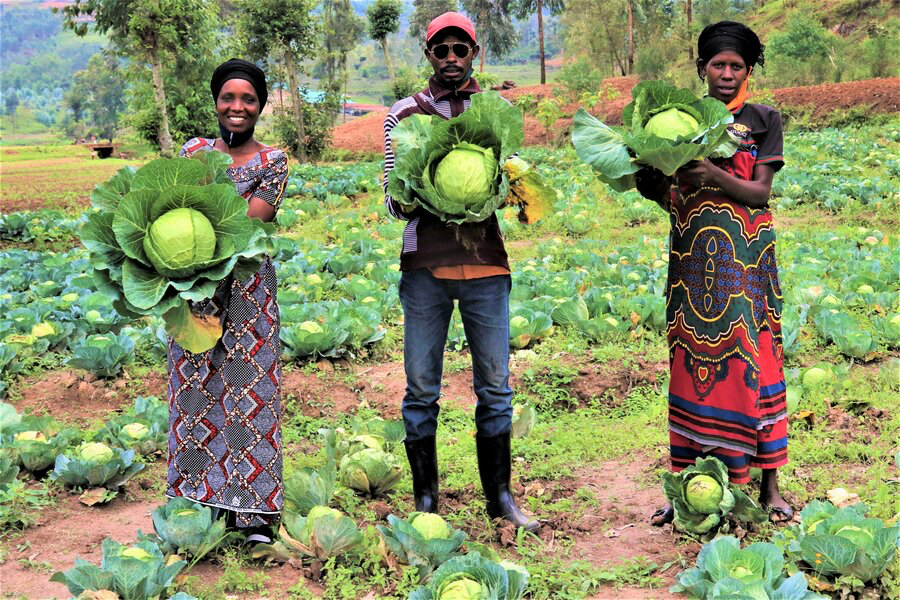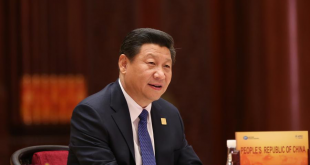Published: June 18,2024
By Gerald Mbanda

Photo: WFP/JohnPaul Sesonga
Since the establishment of the Forum for China and Africa Cooperation (FOCAC) in 2000, many tangible results have been realized on both sides especially on socio-economic development and people to people exchanges.
Agriculture is an important sector to both China and African people and also is of great interest to academiaand policy makers. The biggest critical question for African academia and policy makers is how Africa can borrow a leaf from China’s experience and breakthrough in agricultural modernization to improveyields and food security. Since 2006, China has significantly increased its direct investment in African agriculture and the share of private investment is also increasing in China’s investment in African agriculture.
However, Africa still remains a net importer of food, although it has 60 percent of the world’s uncultivated arable land. Africa’s population has doubled overall and tripled in urban areas in the past 30 years, but agricultural production and food security have struggled to keep pace. Africa’s food import bill has more than tripled, reaching about US$35 billion a year,and by looking at the estimated amount of money spent on food imports yet Africa’s soils are fertile. Much of this imported food could be produced locally, creating much needed jobs and incomes for nations’ youth and smallholders farmers.
The challenges that African agriculture faces have to be tackled in an innovative way which requires a holistic approach with a new organizational system, involving a change in internal profile and a more technological focus that addresses the challenges facing agriculture’s contribution to food security, allowing for the dynamic involvement of new players, for example, the private sector and innovative financing with an investment focus. Emerging countries such as Brazil, China, India including others can provide alternative experiences and technologies that may help African smallholders increase their productivity and food security. Information sharing between emerging and developing countries can be supported through the development of databases, information systems, and platforms for collaboration.
In order to find solutions to the above challenges, Rwanda Institute for international Affairs (RIIA), in collaboration with the Embassy of the People’s Republic of China in Rwanda, in partnership with the Ministry of Agriculture and other government agencies have organized a one day seminar with the theme: “Practice and Vision on China – Africa Agricultural High Quality Development: Food Security, Improve added Value and Facilitate Trade and Agriculture Products.”
The seminar scheduled to take place on June 21, 2024at the Kigali Convention Center (KCC), Rwanda. It is the first of its kind and expected to bring together high level delegates and leaders from Africa-China relations, members of the Diplomatic Corps, policy makers, think tanks, Agricultural cooperative, representatives from International Organisationsaccredited to Rwanda, academia, farmers and trader organizations, members of Private Sector, CSOs, Media Students. More than 150 participants are expected to participate in the seminar.
Panel discussion will focus on the following key aspects:
Deepening synergy and policy consultations on agricultural development strategies between China and Africa for agricultural modernization, China-Africa Agricultural Cooperation on Improving Added Valued of Agricultural Products, and on Integrated Agricultural Development as well as Facilitation of Agricultural Products Trade between China and Africa.
The one-day event on China-Africa relations serves as an opportunity to explore the opportunities, visions and the new challenges to the relations between Africa and China in general and Rwanda in particular, concerning Agriculture and beyond. It will also help to Increaseinteraction among the academia and Agro-business communities of China and Africa to make policy and practical recommendations over strengthening cooperation between China and African countries inagriculture and other sectors of mutual interest.
 Africa -China Review Africa -China Cooperation and Transformation
Africa -China Review Africa -China Cooperation and Transformation
